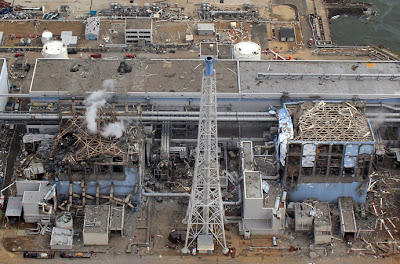引き続き、ロシア・トゥデイの和訳:
これまでに誰かがやらなくてはならなかった最悪で最も重要な仕事
私の2番目に大きな懸念は、燃料棒の引き揚げ作業の間にむき出しの燃料棒にかなり接近する作業員たちの肉体的そして精神的な適応度についてだ。この作業を進める作業員たちは、この計画を手作業で成功させるためには最大の警戒が必要となる。多くの感覚、最も重要な視力は、彼らが危険にさらされている間、燃料棒をプールから取り出して、放射性核燃料輸送容器、又は、至近距離にある共同使い済み燃料プールに入れる作業中に即死するのを避けるために着用しなければならない装具によって妨害されてしまう。
しばらく、作業員の立場になって考えてみよう。暑くて、心地悪く、感覚は防御され、心は不安に満ちている。いまにも崩壊しそうな建物に立っている。たとえ、最強に保護されているとしても、作業員は、しょっちゅう撤去され、交替されなければならないだろう。つまり、放射線量限度に達したとき、頻繁に交替させられるので、このような重要な仕事をしたり、同志を知ったり、信用したりする利益はないのだ。
この燃料棒引き上げ作業は、これまでに誰かがやらなければならなかった中で最悪で最も重要な仕事となるであろう。そして、完璧に事が運んでも、間違った方向に行く多くの可能性があるのだ。
クリスティーナ・コンソロ: 比較はできません。近接した膨大な量の核物質を取り扱うことで、これは信じられないくらい危険な作業となるでしょう。そして、私たちが過去に見たように、その場で一歩間違えれば、連鎖反応的な失敗につながるでしょう。
原文:
'One of the worst, but most important jobs anyone has ever had to do'
My second biggest concern would be the physical and mental fitness of the workers that will be in such close proximity to exposed fuel during this extraction process. They will be the ones guiding this operation, and will need to be in the highest state of alertness to have any chance at all of executing this plan manually and successfully. Many of their senses, most importantly eyesight, will be hindered by the apparatus that will need to be worn during their exposure, to prevent immediate death from lifting compromised fuel rods out of the pool and placing them in casks, or in the common spent fuel pool located a short distance away.
Think for a moment what that might be like through the eyes of one of these workers; it will be hot, uncomfortable, your senses shielded, and you would be filled with anxiety. You are standing on a building that is close to collapse. Even with the strongest protection possible, workers will have to be removed and replaced often. So you don't have the benefit of doing such a critical task and knowing and trusting your comrades, as they will frequently have to be replaced when their radiation dose limits are reached. If they exhibit physical or mental signs of radiation exposure, they will have be replaced more often.
RT: How do the potential consequences of failure to ensure safe extraction compare to other disasters of the sort – like Chernobyl, or the 2011 Fukushima meltdown?
CC: There really is no comparison. This will be an incredibly risky operation, in the presence of an enormous amount of nuclear material in close proximity. And as we have seen in the past, one seemingly innocuous failure at the site often translates into a series of cascading failures.
CC: There really is no comparison. This will be an incredibly risky operation, in the presence of an enormous amount of nuclear material in close proximity. And as we have seen in the past, one seemingly innocuous failure at the site often translates into a series of cascading failures.


No comments:
Post a Comment